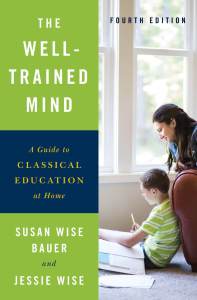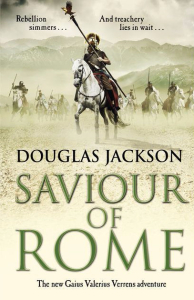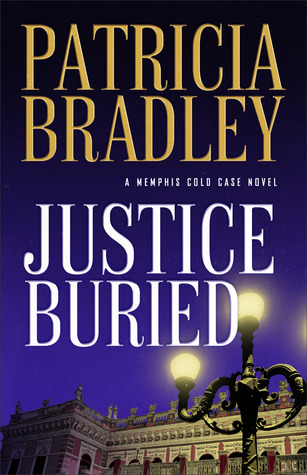 This has been, for personal reasons, the summer of homeschool books. Those personal reasons include me starting to homeschool my fourth-grade son. This is not the first or last book that I will review for that reason, and in fact, I forsee many homeschool-related reviews in our future here at The Starving Artist. Many of those reviews will be universally helpful, but some of them will be specifically for homeschoolers (or homeschool enthusiasts). The majority of reviews, though, will still be for novels, influential books, and junior books with the thrown-in cookbook. But now you’ve been warned.
This has been, for personal reasons, the summer of homeschool books. Those personal reasons include me starting to homeschool my fourth-grade son. This is not the first or last book that I will review for that reason, and in fact, I forsee many homeschool-related reviews in our future here at The Starving Artist. Many of those reviews will be universally helpful, but some of them will be specifically for homeschoolers (or homeschool enthusiasts). The majority of reviews, though, will still be for novels, influential books, and junior books with the thrown-in cookbook. But now you’ve been warned.
The Well-Trained Mind, by Jessie Wise and Susan Wise Bauer, is one such homeschool book: it is not really meant for the population-at-large. It wasn’t on my need-to-read list either, but it came up so many times in conversations with homeschool friends that when one of them offered to sell me a used copy, I took it.
There are caveats for this book, as well as some of the other homeschool books that I use. The first is that it is distinctly Christian. I am a Christian, but I also found that homeschool material abounds in the Christian bracket, so it would be hard to avoid even if you were doing secular or other-religion homeschooling. For some of these materials, you could use them anyhow, skirting their religious content. This book is like that. (For the rest, you just wouldn’t even want to try, since it is so pervasive.) The second caveat is that this book is meant for “Classical Education.” You see, just like in education in general, there are various schools of homeschool, and one of the main ones is “Classical.”
If you aren’t going the Classical route, whole-hog, this book is going to have limited applicability for you. This book is basically the primer for a Classical Education. I say that, and yet I have gleaned a fair amount from the book. I have marked it all up, and I have pulled many things from it for use in our classroom. (Our homeschool is what would be labeled “Eclectic,” meaning that I have created curriculum that pulls from several different styles, including—but not limited to—Classical.) Still, all those handy book lists, etc., would be so very useful if you were teaching in the Classical style.
The authors of this book are a mother and daughter team. The mother started homeschooling back when homeschool curriculum was a desert wasteland, and her daughter was homeschooled, accidentally, in the Classical style until she grew up to be very successful and homeschool her own children. The team will definitely tries to sell the reader on the Classical style, and the book does not include as much practical encouragement (All our houses are disasters!) as other homeschool guides tend to.
I wouldn’t go back and un-read this book, since I am using it here and there. Also, I may incorporate it more as my son gets older, especially since I read it after I had solidified many of my curriculum choices for the year. (It is broken into three learning stages, so I only read the first one.) I was a little turned off by the one-track way of educating, and yet the appeal of following a formula was very strong. (Unfortunately, my son is not a great fit for Classical education, as much as Wise and Wise-Bauer want to sell it and have had great success from it.)
I would recommend this book, but only in harmony with some other, more basic, introductory, homeschool books. If you are going to teach homeschool with the Classical method, you really have to have this book on your shelf. You have to read it. And you really should utilize all those lists and resources inside. If you are not sure which method you want to use, then perhaps this is one of the books you should read to figure that out, along with more basic books and books about the Charlotte Mason method, Eclectic homeschooling, Great Books, Un-schooling (sigh), and other methods. (I am still learning the field, so I don’t know all the types. HERE is an article that walks you through some of them. We have a local Five-In-A-Row chapter, so that would be an option for us, too.) Also find homeschool brands online, like Sonlight or Abeka, and see if you want to just stick with them, instead.
At any rate, I’m glad I have this book on my shelf. Could I live without it? Sure (though not if we were a Classical homeschool). But it’s well-written and useful, and quite frankly, I find homeschool information to be really fascinating right now.
__________
I read The Well-Trained Mind by Jessie Wise and Susan Wise Bauer. It was published by W. W. Nortan & Company in 1999, and I’m pretty sure I read the first edition. It now comes in a fourth edition.
__________
QUOTES
*I have only included quotes that are less technical. Much of my underlining involved curriculum ideas.
“But don’t be afraid to take off on a tangent” (p168).
“The grammatical structure of English is based on Latin, as is about 50 percent of English vocabulary” (p200).
“Resist the temptation to spread your instruction too thin” (p215).
“Home schooling allows time and space for the teaching of practical skills” (p582).
“Plan ahead, of course, but don’t panic” (p583).
“If your child were enrolled in a large, well-equipped high school that offered many courses, that would still allow only so many selections” (p583).
“Personally, I decided to put on hold some of my goals” (p587).
“Every October and March, I wanted to quit. (I learned to take a week off when that feeling came over me)” (p587).
“The classroom places the child in a peer-dominated situation that he’ll probably not experience again” (p590).
“Make the family the basic unit for socialization” (p590).
“Nor should you be afraid of being alone. A measure of solitude can develop creativity, self-reliance, and the habit of reflective thought. Socialize, but don’t crowd your schedule so full…” (p593).
“You can’t live in the real world without structure and authority” (p597).
“Although it takes organization, energy, determination, combining home school with work can be done” (p599).
“Do the A’s first, the B’s next, and let the C’s fall off your schedule” (p602).
“Start the year with a disciplined approach, following a preplanned, written schedule. If the plan is too strenuous, you can adjust and ease up…” (p603).
“Remember that everything costs either money, time, or energy, all of which are in limited supply” (p606).
Advertisements Share this:
![Legacy: Love, Intrigue and Redemption Under the Scorching Spanish Sun (Andalucian Nights Trilogy) by [Fielding, Hannah]](/ai/037/438/37438.jpg)



